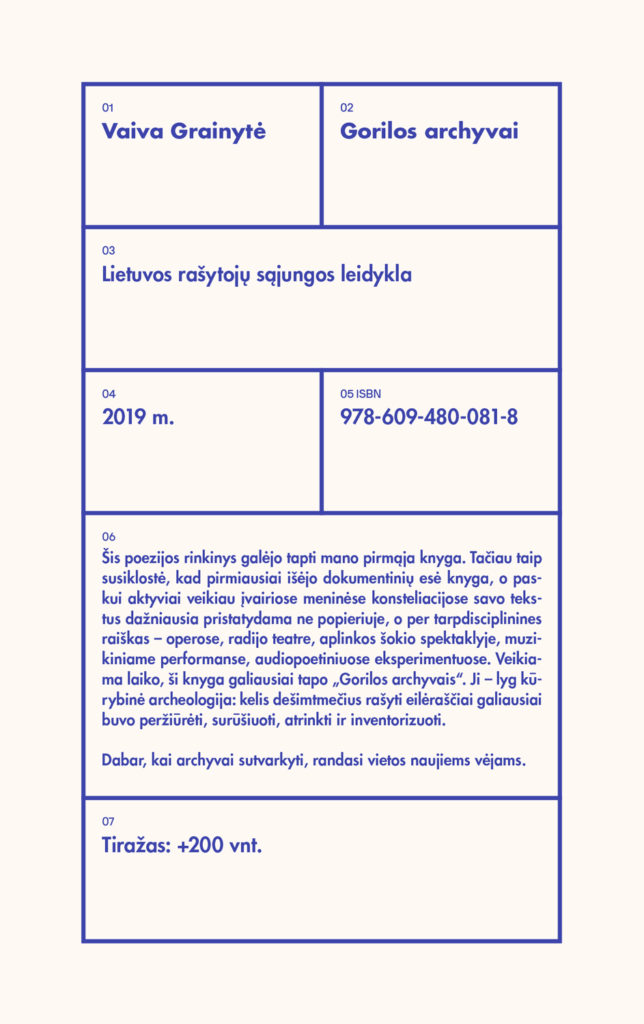May 24, 2019 Gorilla’s Archives, 2019
Poetry collection
Gorilla’s Archives is a poetry collection by Vaiva Grainytė. It was nominated for the Book of the Year awards, and included in the top twelve listings of the most creative books in Lithuania (2019).
I’d like to call Grainytė’s poetry neo-avant-garde: as this type of poetry is very scarce in Lithuania, Grainytė’s texts are reminiscent of the writing style of Keturi vėjai, practiced during the interwar period, when the first real Lithuanian avant-garde corresponded smoothly with the “straw-like” details of the Lithuanian countryside. This harmony is also present in Grainytė’s poetry, as the author is open to ecological issues, her lifestyle is not purely urban, and her language connects fragments of nature and modernity […]
Such writing style is not very frequent in Lithuania: the poet intentionally mixes up the grammatical gender of the word “Sun,” applies the avant-garde collage principle, takes up a negligent observer’s posture, and uses a semantically condensed language. The title of the book is also quite unusual: the rather coarse image of a gorilla doesn’t offer any sweet talk to the reader; on the contrary, it’s almost disturbing, a little like Luis Buñuel’s An Andalusian Dog. Grainytė’s not imitating any Lithuanian poet and has no tendency of obeying the authority-based poetic tradition so characteristic of this country. This fairly untypical style also includes some postmodern techniques, such as the use of insignificant numbers, prices, information from receipts, and all sorts of mundane details
—G.Kazlauskaitė’s review What a Vile Duke is the Sun
